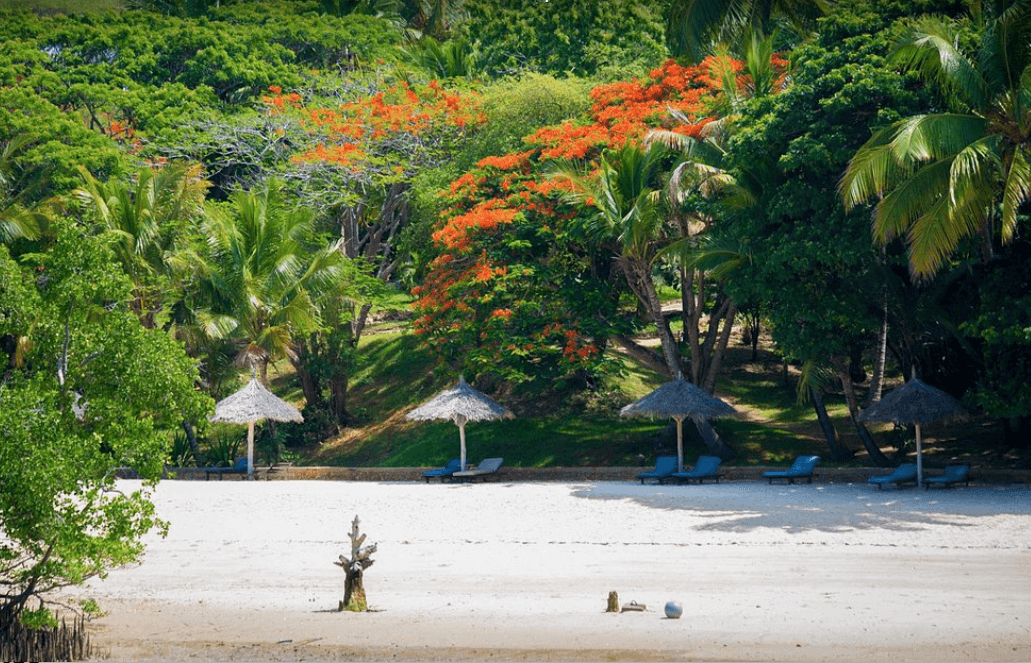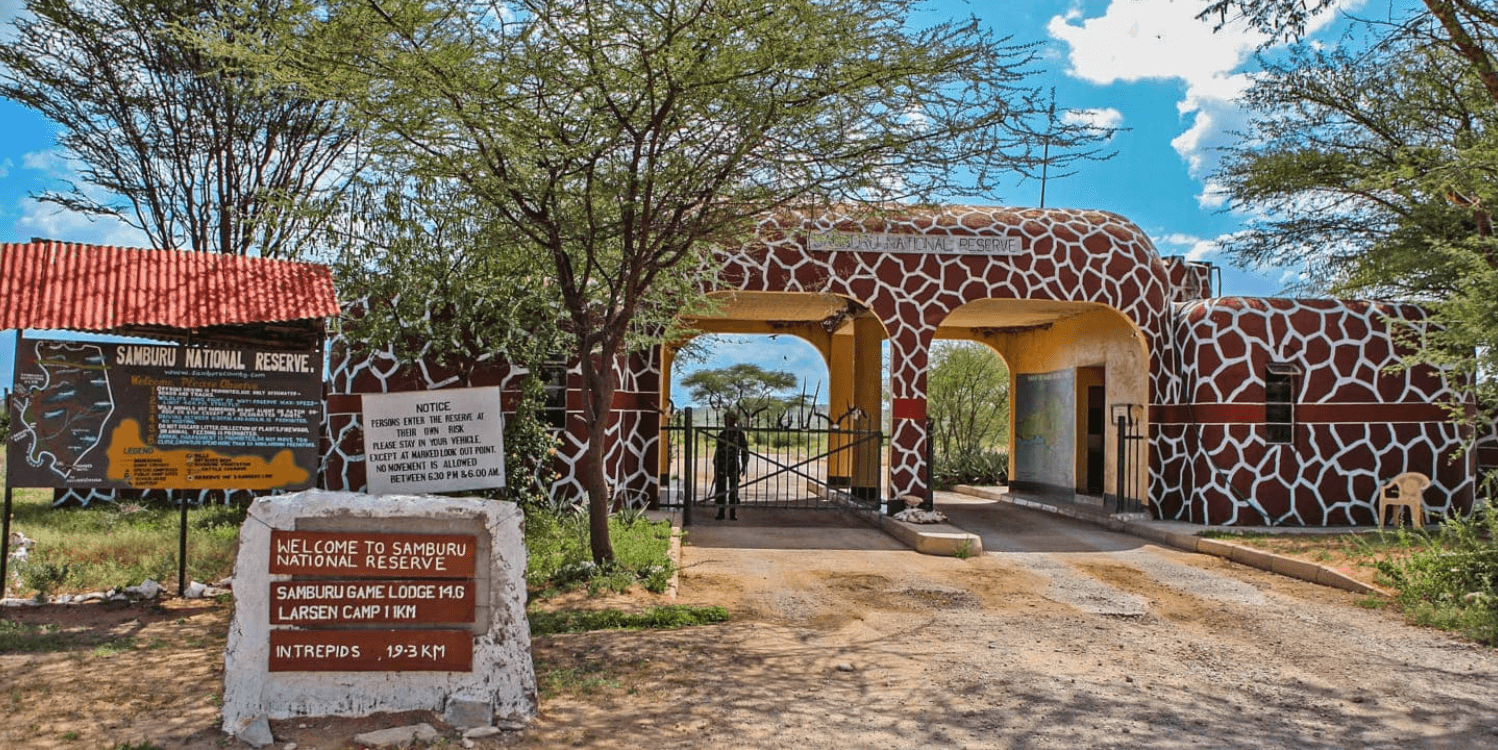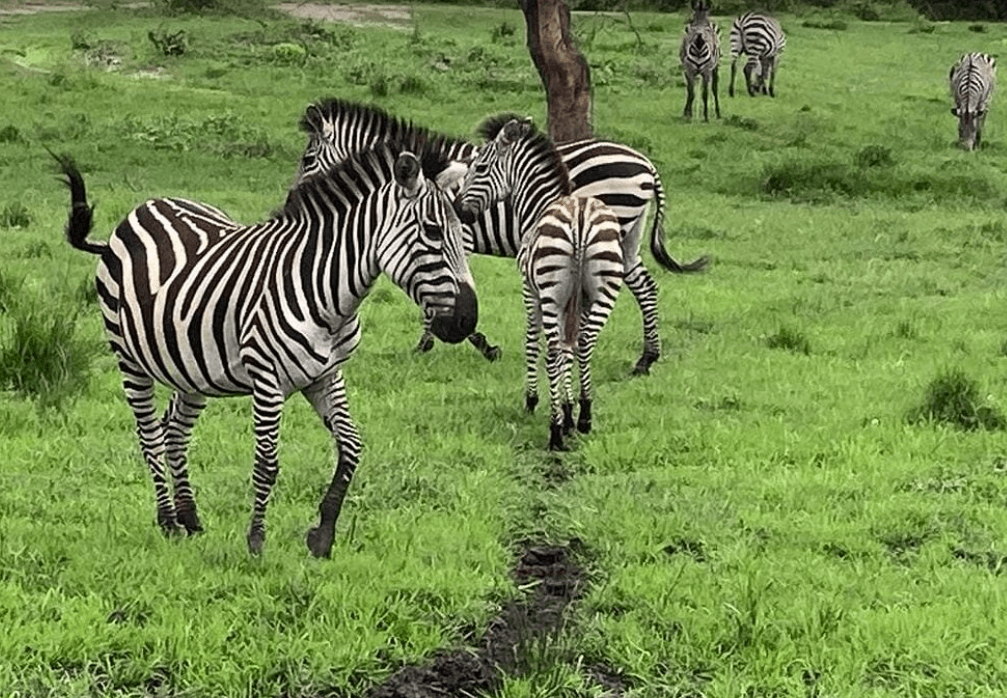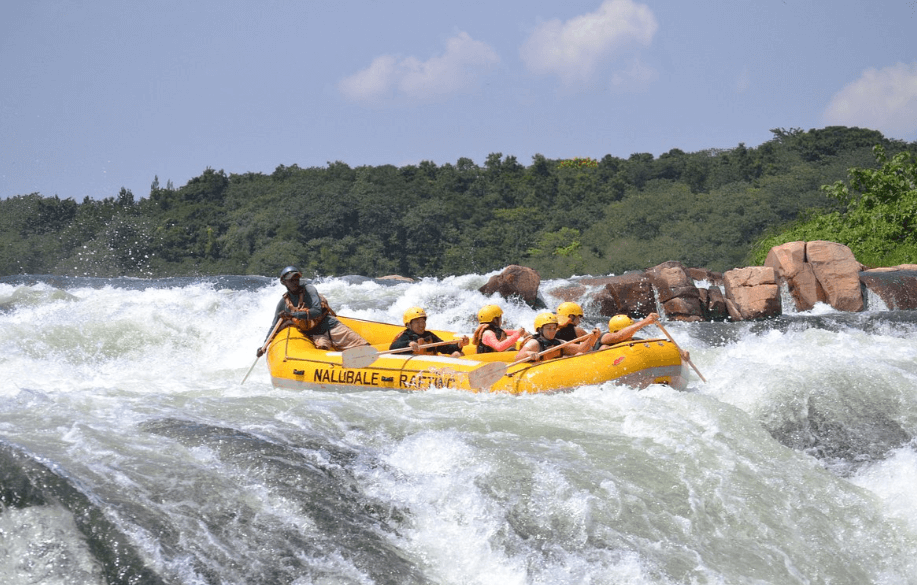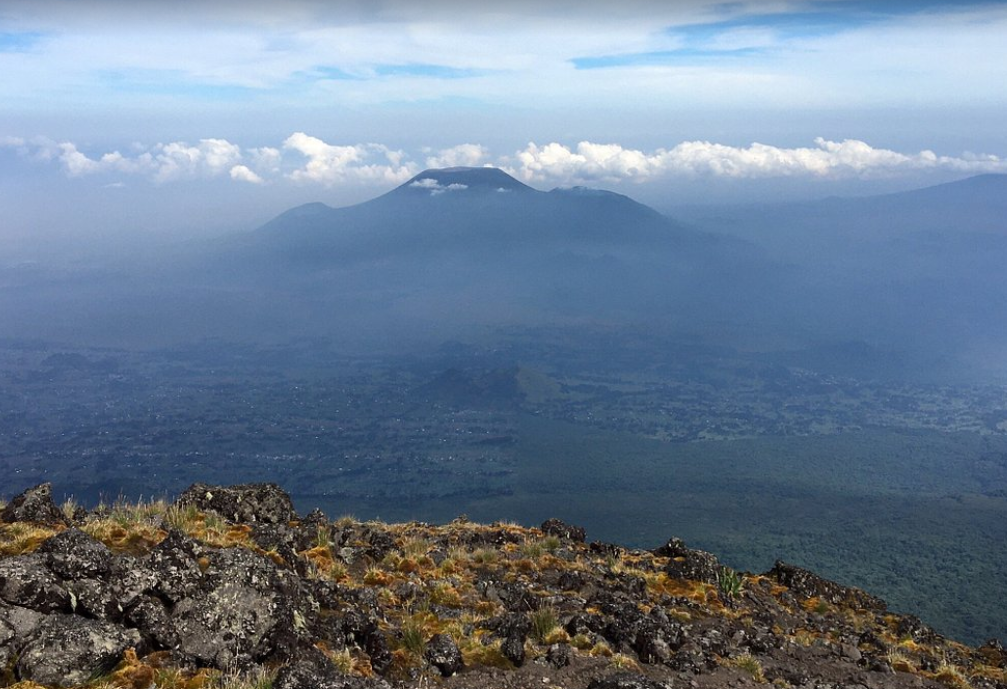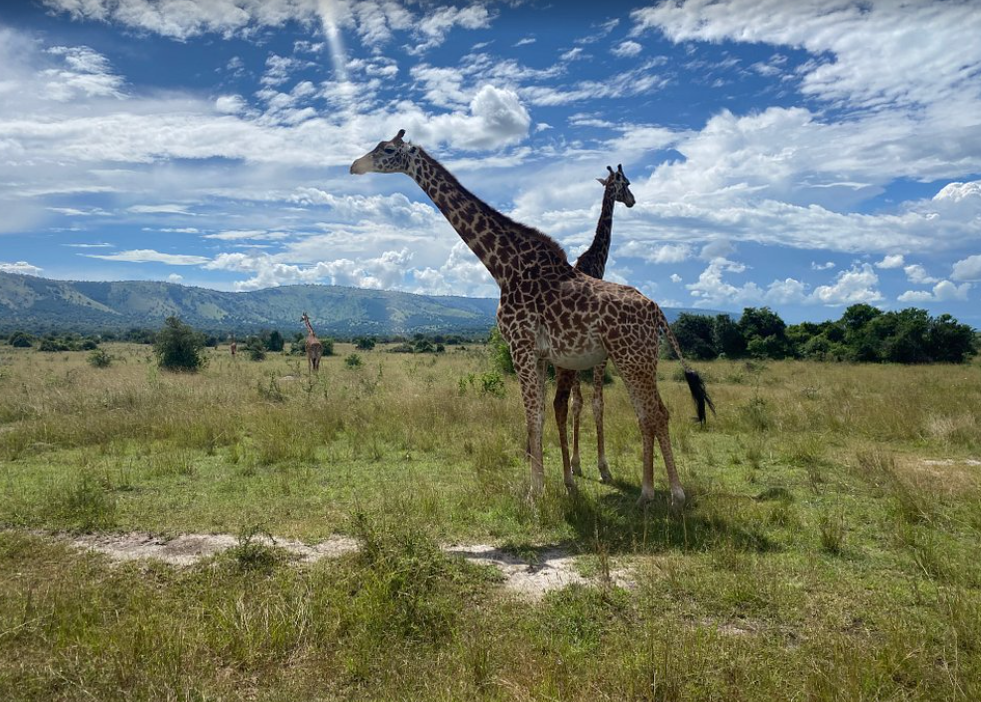Discover Iby’iwacu Cultural Village: A Cultural Gem in Rwanda
Cultural Center stands out as an extraordinary destination in Rwanda, offering a unique and immersive experience into the country’s rich cultural heritage. Located conveniently near Volcanoes National Park, this cultural village operates as a living museum, where the traditions, customs, and history of Rwanda are both preserved and celebrated. Visitors can explore the daily lives of Rwandans through engaging, interactive experiences that foster deeper connections with local communities.
From traditional music and dance to crafts and culinary delights, Iby’iwacu Cultural Village provides an authentic and enriching cultural journey. This article delves into various aspects of the village, including its location, transportation options, activities, best times to visit, costs, accommodation recommendations, and answers to frequently asked questions.
Where Is Iby’iwacu Cultural Village Located?
A Prime Location Near Volcanoes National Park
It is situated in the Musanze District of northern Rwanda, just a short distance from Volcanoes National Park. This strategic location makes it an ideal stop for travelers who are exploring the region for gorilla trekking or other wildlife experiences. The village is set amidst rolling hills and lush greenery, enhancing its serene and picturesque environment.
Specifically, the village is located in Kinigi, a community nestled at the foothills of the Virunga Mountains. These mountains, home to some of the world’s last remaining mountain gorillas, add significant cultural and natural value to the village. Consequently, Iby’iwacu Cultural Village serves as a unique intersection of cultural and natural heritage.
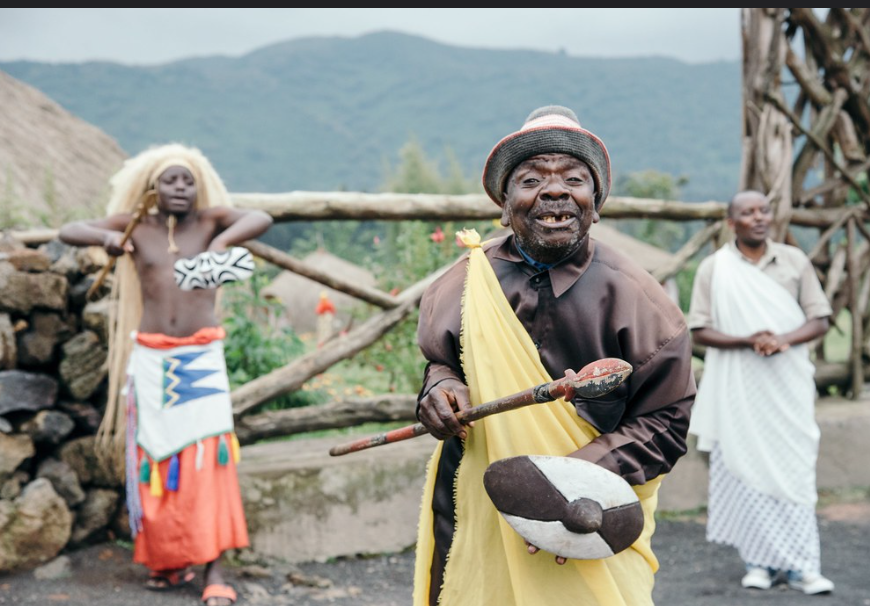
How to Get to the Cultural Village
Traveling to the Village
Reaching the Iby’iwacu Cultural Center is straightforward, with several convenient transportation options available. Most visitors begin their journey in Kigali, Rwanda’s vibrant capital city, which is well-connected by international flights.
By Air
Kigali International Airport (KGL) serves as the main gateway to Rwanda. Multiple international airlines offer direct flights to Kigali from major cities worldwide, such as Amsterdam, Brussels, Doha, and Nairobi. Upon arriving in Kigali, you can easily arrange transportation to Musanze District, the gateway to Iby’iwacu.
By Road
From Kigali, the drive to Iby’iwacu Cultural Center takes approximately two hours, depending on traffic and road conditions. The route offers scenic views of the Rwandan countryside, including rolling hills and glimpses of the Virunga Mountains. Options for reaching the village include private transfers, taxis, or car rentals, all of which are convenient choices.
By Public Transport
For those on a budget, public buses and minibuses are available between Kigali and Musanze. Once in Musanze town, you can hire a taxi or motorbike (known locally as a “moto”) to take you to the village. This method is cost-effective and allows you to experience local transportation.
Activities at Iby’iwacu Cultural Village
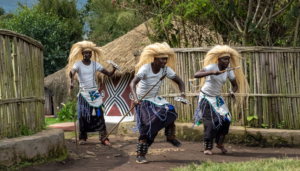
Engaging with Traditional Rwandan Culture
One of the most compelling aspects of Iby’iwacu Cultural Village is its array of traditional Rwandan cultural activities. These immersive experiences are designed to be interactive, allowing visitors to actively participate and gain firsthand knowledge of Rwandan customs and traditions.
Traditional Dance and Music
At Iby’iwacu, you can enjoy captivating performances of traditional Rwandan dance and music. Performers dressed in colorful, traditional attire showcase the Intore dance, renowned for its energetic and graceful movements. Accompanying the dance are traditional songs and the rhythmic beats of drums (known as ingoma), integral to Rwandan ceremonies and celebrations.
Visit to a Traditional Healer
The village offers an intriguing chance to visit a traditional healer, or “Umuganga.” These healers utilize natural herbs and ancient practices passed down through generations to treat various ailments. During your visit, you will learn about traditional medicine and its role alongside modern healthcare practices in Rwanda.
Participate in Traditional Craft Making
Visitors can also participate in hands-on crafting sessions at Iby’iwacu. You will learn to create traditional Rwandan items such as baskets, pottery, and woven mats, using techniques that have been preserved through generations. This experience not only teaches a new skill but also provides insight into the craftsmanship that is integral to Rwandan culture.
Experience Traditional Rwandan Cuisine
No cultural visit is complete without sampling local cuisine. At Iby’iwacu, you have the chance to enjoy traditional Rwandan dishes made from locally sourced ingredients. Cooking demonstrations are often organized, allowing you to learn how to prepare dishes like “Isombe” (cassava leaves) and “Ugali” (a type of maize porridge). This culinary experience offers a delightful way to explore Rwanda’s diverse flavors.
Explore a Replica of a Traditional Rwandan King’s Palace
Additionally, Iby’iwacu features a replica of a traditional Rwandan king’s palace. This replica offers visitors a glimpse into the architectural styles and royal customs of Rwanda’s past. Constructed using traditional methods and materials, the palace tour provides valuable insights into the history of Rwanda’s monarchy and the role of kings in society.
Guided Tours and Community Interaction
Alongside cultural activities, Iby’iwacu Cultural Village provides guided tours where you can learn about the daily lives of the local community. Guides, often members of the community, offer a personal perspective on Rwandan culture and history. Visitors are encouraged to interact with villagers, ask questions, and gain a deeper understanding of the local way of life.
When to Visit the Center
Optimal Visiting Periods
The best times to visit Iby’iwacu Cultural Village are during Rwanda’s dry seasons, which occur from June to September and December to February. During these months, the weather is more stable and less rainy, making it easier to travel and engage in outdoor activities. Moreover, these dry seasons coincide with the optimal times for gorilla trekking in Volcanoes National Park, allowing you to combine cultural and wildlife experiences seamlessly.
Special Events and Festivals
Rwanda hosts several cultural festivals throughout the year, and visiting Iby’iwacu during these events can enrich your cultural experience. Festivals such as Umuganura, the Rwandan harvest festival, are celebrated with traditional dance, music, and feasting, providing a vibrant glimpse into Rwandan culture at its most festive.
How Much Does It Cost to Visit Iby’iwacu Cultural Village?
Entrance Fees
The entrance fee for Iby’iwacu Cultural Village generally includes a guided tour and participation in various cultural activities. As of the latest update, the entrance fee ranges between $20 and $30 per person. These fees support the local community and contribute to maintaining the cultural village.
Additional Costs
While the entrance fee covers most activities, there may be additional costs for special experiences, such as visiting the traditional healer or participating in craft-making workshops. These additional fees are usually modest and are paid directly to the artisans or guides.
Booking and Payment
It is advisable to book your visit to Iby’iwacu Cultural Village in advance, especially during peak tourist seasons. Arrangements can be made through local tour operators or directly with the village for a more personalized experience. Payments are typically accepted in cash, so carrying some local currency (Rwandan Francs) or US dollars is recommended.
Where to Stay Near Iby’iwacu Cultural Village
Accommodation Options
Several accommodation options are available near Iby’iwacu Cultural Village, ranging from luxurious lodges to budget-friendly guesthouses. Here are a few options to consider:
Sabyinyo Silverback Lodge
Sabyinyo Silverback Lodge, a luxury option, is located close to Volcanoes National Park and offers stunning views of the Virunga Mountains. The lodge features comfortable, spacious cottages with modern amenities, making it ideal for those seeking a high-end experience. The lodge also organizes guided tours and activities, including visits to Iby’iwacu Cultural Village.
Mountain Gorilla View Lodge
Mountain Gorilla View Lodge offers a mid-range accommodation option near the park. It provides cozy cottages with fireplaces, perfect for relaxing after a day of exploration. Its proximity to both the cultural village and Volcanoes National Park makes it a convenient choice for travelers.
Kinigi Guesthouse
For those traveling on a budget, Kinigi Guesthouse offers affordable accommodation just a short distance from Iby’iwacu Cultural Village. The guesthouse provides basic but comfortable rooms and is a popular choice among backpackers and those seeking a simple place to stay.
Booking Your Stay
Booking accommodation well in advance is recommended, particularly during peak tourist seasons. Many lodges and guesthouses offer packages that include visits to Iby’iwacu Cultural Village and other nearby attractions, making it easy to plan your trip.
Frequently Asked Questions (FAQs) About Iby’iwacu Cultural Village
What Is the Purpose of Iby’iwacu Cultural Village?
Iby’iwacu Cultural Village was established to preserve and promote Rwandan culture while providing alternative livelihoods for the local community. The village functions as a living museum where visitors can learn about Rwanda’s cultural heritage and engage meaningfully with local people.
Can I Visit Iby’iwacu Cultural Village Without a Guide?
Although it is possible to visit Iby’iwacu without a guide, a guided tour is highly recommended. The knowledgeable guides offer valuable insights into Rwandan culture and history, enhancing your overall experience.

